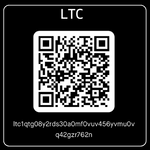To form an appreciation for Bitcoin, one must first understand money. Not only is money a means of transacting, or a currency to transfer value from asset to asset and from owner to owner. Money is an asset class with intrinsic value in and of itself, so is Bitcoin.
Another way to view Bitcoin is that it is technology. Money too is technology, there were coins, then came the printing press, then came dollar bills, then came special denotable features embedded in real money as opposed to counterfeit bills. However, factors influencing the value of money changes as if with the seasons.
Alternatively, Bitcoin is built on immutable technology - the block chain - an open source compter code released in 2011 by an unidentfied creator called Satoshi Nakamoto. Think of block chain as the scale used to measure a bar of pure gold, we trust the scale's displaying an accurate measure, we put full confidence in the scale, but the scale itself is of no value to us. Not that the trader couldn't rig the scale - that's never happened before. But when you think of Bitcoin and its immutability, the idea that the scale can never be rigged, no monkey business, then you start gravitating to a mode of transacting that you indeed place full confidence - the birth of cryptocurrencies.
At their bedrock, Bitcoin, and subsequently hundreds of actively traded cryptocurrencies, they not only are the basis to accurately measure value, a single crypto coin, these scales, could potentially outweigh gold, silver, printed bills and even rival the valuation of secluded whitesand beach islands. Envision a society where the adoption of block chain technology expands beyond currency, the decentralization effect where true value of any conceivable thing is in the hands of the holders, not the hands of controllers. Block chain breaks control whereas no one body owns it, because it belongs to everyone who holds it. Such technology is poised to become the basis of facilitating trust and transparency and a means of communicating confidence in the scale of trading worldwide and intergalactic.
Such a mode of technology or that scale, which was invented to enhance value, becomes as valuable and even much more valuable than the thing it aimed to enhance. Bitcoin's value emerges beyond its instant transferability as a currency. Bitcoins holds top spot for its store of value. Its multitude of network computing ledgers record every transfer of ownership. Its digital nodes ease the need for burdensome weights and measures from place to place. Other cryptos are not inching at the mighty US dollar, no, today Bitcoin is the heavyweight champ against which every other crypto coin aims to match up.
Mid-April 2021, there were roughly 18.67 million Bitcoins in circulation out of a 21-million-coin cap. In a sense, Bitcoin trading above $63,000 USD to one BTC coin, makes this snippet of digital code the most underestimated unit of measurement ever created by human. As a matter of record, Bitcoin reigns as the most underestimated universal equalizer for planetary trade.
Recently, under the pseudonym @BitcoinBrownSugar, I tweeted this conclusion, "any question you have about the current financial crisis #Bitcoin answers that. Any problem you have with monetary systems #Bitcoin solves that. Any concern you have with distribution of wealth #Cryptos address that. Any issues you have about fair-trade #Cryptos is the solution."
This article is viewing at Bitcoin as it is today, stay tuned for next edition to learn more about the origin of Bitcoin and practical applications of block chain technology.





